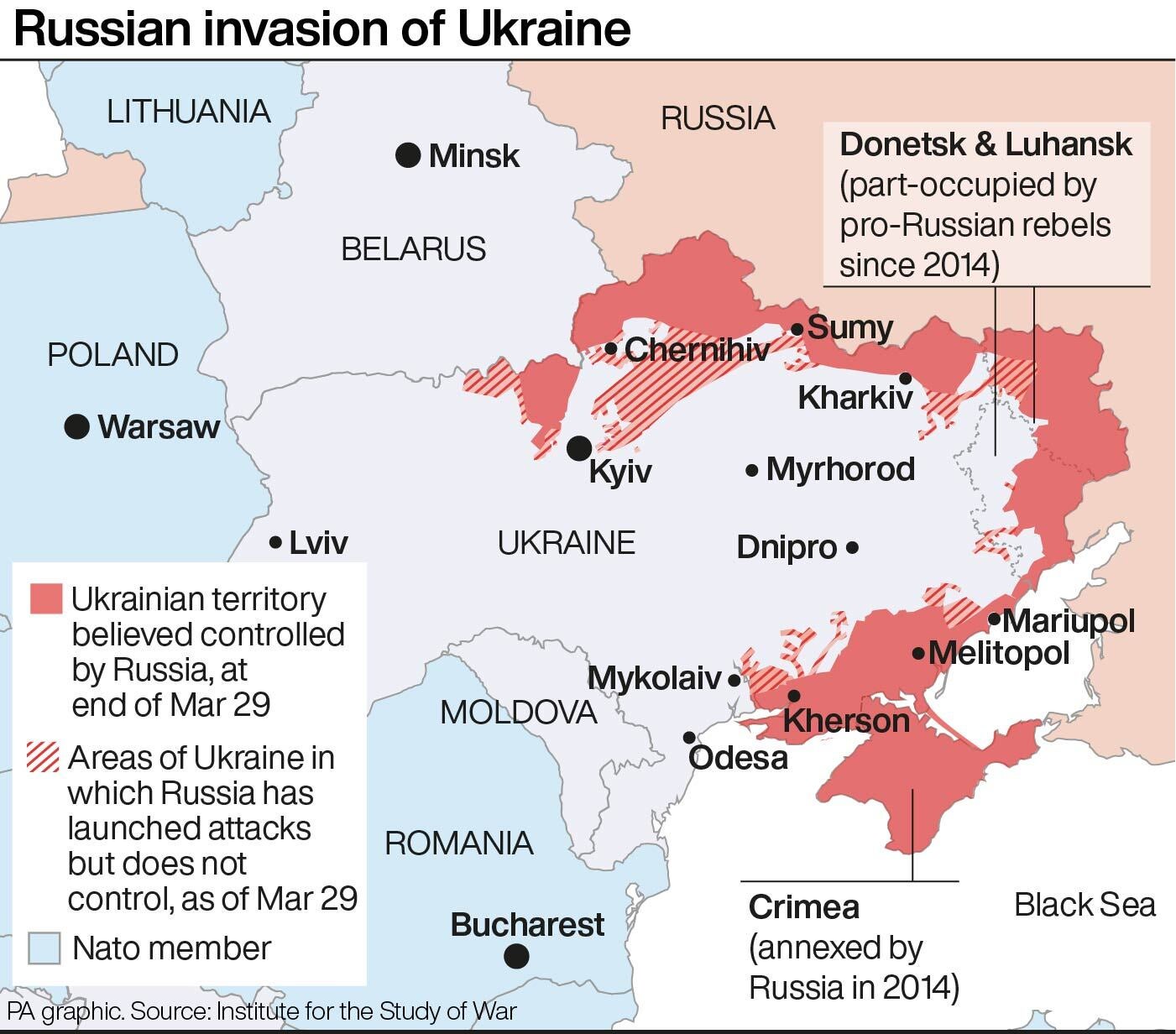Ukrainian zoo animals at risk of starvation as food supplies run out amid Russian bombardment
Putin’s war has cut off most deliveries to zoos housing thousands of animals including elephants, tigers and polar bears
Your support helps us to tell the story
From reproductive rights to climate change to Big Tech, The Independent is on the ground when the story is developing. Whether it's investigating the financials of Elon Musk's pro-Trump PAC or producing our latest documentary, 'The A Word', which shines a light on the American women fighting for reproductive rights, we know how important it is to parse out the facts from the messaging.
At such a critical moment in US history, we need reporters on the ground. Your donation allows us to keep sending journalists to speak to both sides of the story.
The Independent is trusted by Americans across the entire political spectrum. And unlike many other quality news outlets, we choose not to lock Americans out of our reporting and analysis with paywalls. We believe quality journalism should be available to everyone, paid for by those who can afford it.
Your support makes all the difference.Animals in zoos and parks are threatened by starvation while Russia prolongs its onslaught on Ukraine, conservationists in the country say.
Fighting and destruction have devastated areas close to besieged Mariupol and Odesa on the south coast, where several reserves and animal attractions are struggling to keep their animals alive.
Continual shelling and bombardment have wrecked the usual deliveries of meat for the animals, and the lives of staff have been turned upside down in one of the country’s worst war zones. Parks and reserves have all also lost their income from visitors.
The Ukrainian Nature Conservation Group says delivery of animal feed is “impossible or extremely limited” to the Askania-Nova reserve, which is home to nearly 4,000 animals, including ostriches, emus, rhinos, bison, wild horses, llamas and the world’s largest herd of critically endangered saigas antelopes.
The head of Mykolaiv Zoo, not far away and which has been hit multiple times by Russian shelling, says they are running out of money to feed their 4,000 animals, including giraffes, hippos, polar bears, elephants, tigers and the Amur leopard, the rarest subspecies of the big cat.
Volodymyr Topchyi has appealed for people to buy e-tickets to help fund food purchases.
The Berdyansk Zoo also urgently needs food for its lions, wolves, alpacas, tigers, black bears, camels, black leopard, lemurs and emu, according to the Animal Survival International organisation, which is raising funds for feed.
The organisation also says the Yelanetsky Steppe reserve, just north of Mykolaiv, needs food for 28 species of mammals including bison, red fox, roe deer and wild boar. However the most urgent need there is to rebuild a huge fence that has been repeatedly breached by Russian tanks.
“If the animals flee, their fates are sealed; they will be mown down in the war,” Animal Survival said.

“The grazing bison are incredibly important for the reserve’s ecosystem, because they protect it from being overgrown with invasive, alien plants.”
It said the Ukrainian Nature Conservation Group has managed to reach Yelanetsky, in an area where troops have held off Russian attackers.
The Feldman Ecopark zoo in Ukraine’s second city, Kharkiv, was damaged amid fighting but kangaroos have been rescued in an emergency evacuation.
Three staff members and animals including orangutans were reportedly killed there in Russian attacks.

A zoo near Kyiv requested a humanitarian corridor to rescue animals as the owner said some had begun to die of hunger and cold because supplies of food, power and gas had run out.
The Park XII Months zoo last week asked for help saving the animals or for volunteers to take food for those that are difficult to transport.
Seven bears were taken from wild animal sanctuary White Rock Shelter near Kyiv and taken to Domazhyr sanctuary run by Four Paws in the west of Ukraine. Three were later taken to Germany where carers planned to house them permanently.

Conservationists say the shaking and loud explosions are extremely stressful for the captive animals.
Animal Survival International said the full extent of habitat destruction and the effect on the region’s wildlife is unknown so far, but added: “Once the war is over, we will be there to help the free wildlife of Ukraine, including otters, wolves, elks, deer and wildcats, who must be suffering terribly as Russian tanks devastate their homes.”
The Independent has a proud history of campaigning for the rights of the most vulnerable, and we first ran our Refugees Welcome campaign during the war in Syria in 2015. Now, as we renew our campaign and launch this petition in the wake of the unfolding Ukrainian crisis, we are calling on the government to go further and faster to ensure help is delivered. To find out more about our Refugees Welcome campaign, click here. To sign the petition click here. If you would like to donate then please click here for our GoFundMe page.



Join our commenting forum
Join thought-provoking conversations, follow other Independent readers and see their replies
Comments